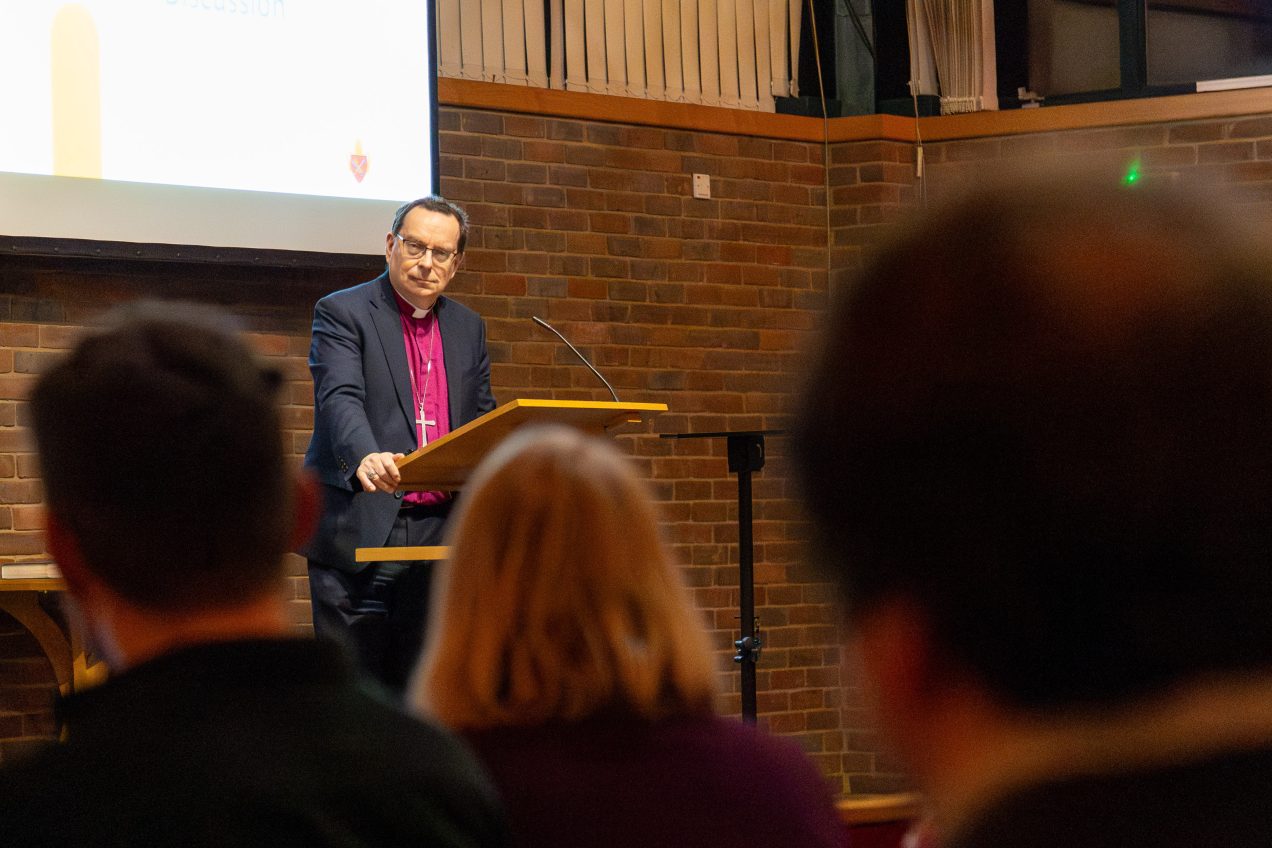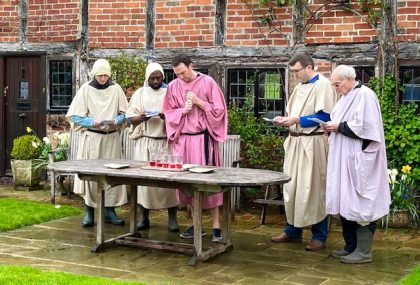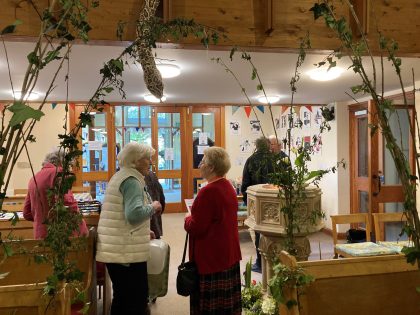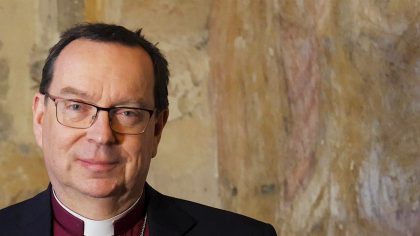21 March 2024
Sisters and brothers in Christ, it’s a joy and privilege to share this, my first Presidential Address, with you. I remain very conscious of the blessing that is mine to be Bishop of Winchester – as well as the responsibility that rests upon me – and I am very grateful indeed for the unequivocally warm welcome I have received here. Thank you so much.
In this first address I want to cast something of a vision for the Church of God, both more broadly, and in the Diocese of Winchester in particular. I want to say unequivocally that I am not at all indifferent to the Church of God: far from it. At interview I said that I have an evangelical heart for the gospel; and a Catholic heart for the church: and I do. I have an unapologetic passion for the Church of God.
I know I’m not really supposed to have favourite parts of scripture, because it’s all the inspired Word of God, but I do love the letter to the Ephesians, and one reason I love it is because of the wonderful things it says about the Church of God. Listen to these words from the end of Chapter 2:
You are no longer foreigners and strangers, but fellow citizens with God’s people and members of his household, built on the foundation of the apostles and prophets, with Christ Jesus himself as the chief cornerstone. In him the whole building is joined together and rises to become a holy temple in the Lord. And in him you too are being built together to become a dwelling in which God lives by his Spirit.
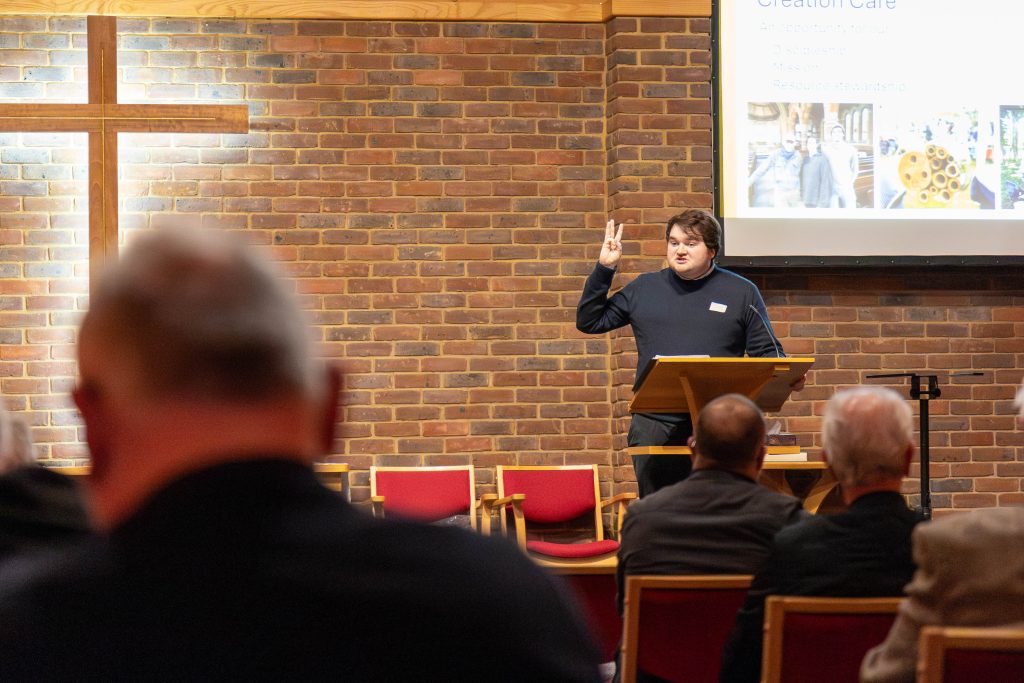
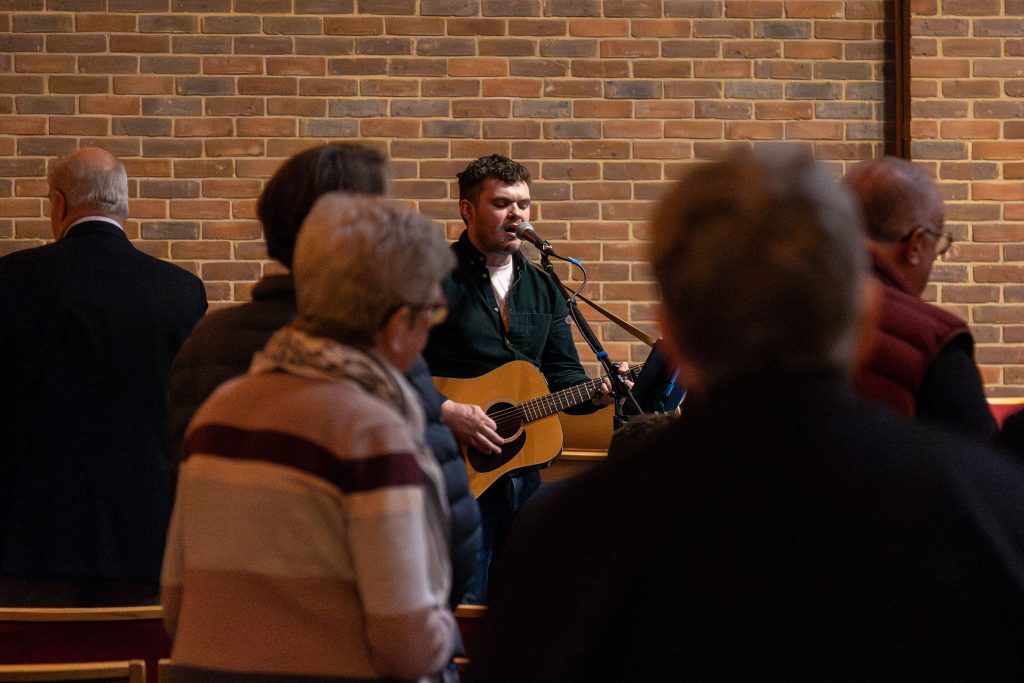
What amazing things we can say about the Church of God, that we are allowed to say, that we are encouraged to say. Whatever else may be true in the gritty reality of church life, nonetheless we are no longer foreigners and strangers, but fellow citizens with God’s people and members of his household, built on the foundation of the apostles and prophets, with Christ Jesus himself as the chief cornerstone. In him the whole building is joined together and rises to become a holy temple in the Lord. And in him [we] too are being built together to become a dwelling in which God lives by his Spirit.
All that is true of us. And if you ask me what my ambition is for the Diocese of Winchester it is that we should measure up more and more to what in Christ, by grace, we are, according to those words. Or, to put it even more simply I want the church in the Diocese of Winchester, by the grace of God and the work of the Holy Spirit, to be the very best it can be: to be the very best it can be not only for its own sake (though I do want that) but for the sake of the world to which we are sent and which our Lord loves.
I do want to say, unequivocally, that there is so much that is already very good in this Diocese. There are so many people, in our churches, chaplaincies and schools, working to ensure the church is the very best it can be. It’s been my privilege to witness and experience that in the months since this Synod last met. It’s been a joy to visit some excellent chaplains, serving the Army, universities, a hospice, the police and the prison service; to license and institute a good few wonderful parish clergy; to take part in the Epiphany chalking of the doors in our church school in Old Basing; to confirm wonderful new disciples of Christ; to visit and be blessed by the ministry of so many of our parish churches. There is so much that is already very, very good in this Diocese.
And of course what our Church House staff do is to help us, the Church of God, in so many different ways, to be the best we can be. And they do it very well too and I’m very grateful to them for it.
And it’s the task of this Synod to help the Church to be the best it can be. If I may say so, it’s not our task to replicate the increasingly divisive politics of General Synod – a tendency which I know our own General Synod reps are as unhappy with as I am. Our task, together, is to attend to the health and well-being of the Church that is entrusted to us: not only for its own sake but for the sake of the world to which we are sent and which our Lord loves.
There is so much about this Diocese that is good. I look back with such thankfulness to my wonderful service of welcome, so wonderfully hosted by our Cathedral, and the inspirational clergy conference that followed, and I am so grateful to God for them both.
And I also want to say that the welcome I have received in the wider community has been no less warm. Just yesterday I met with the Leader, Chief Executive and Heritage and Communities lead of Hampshire County Council. It was a very positive meeting, and they are very keen indeed to strengthen our partnership. Of course in many ways and in many places there are already very good connections and links with the wider community, but the point I want to make is that there are many people in the wider world who are very keen for us to be the very best we can be.
So how can we help the Church of God in this Diocese be the very best it can be in the future?
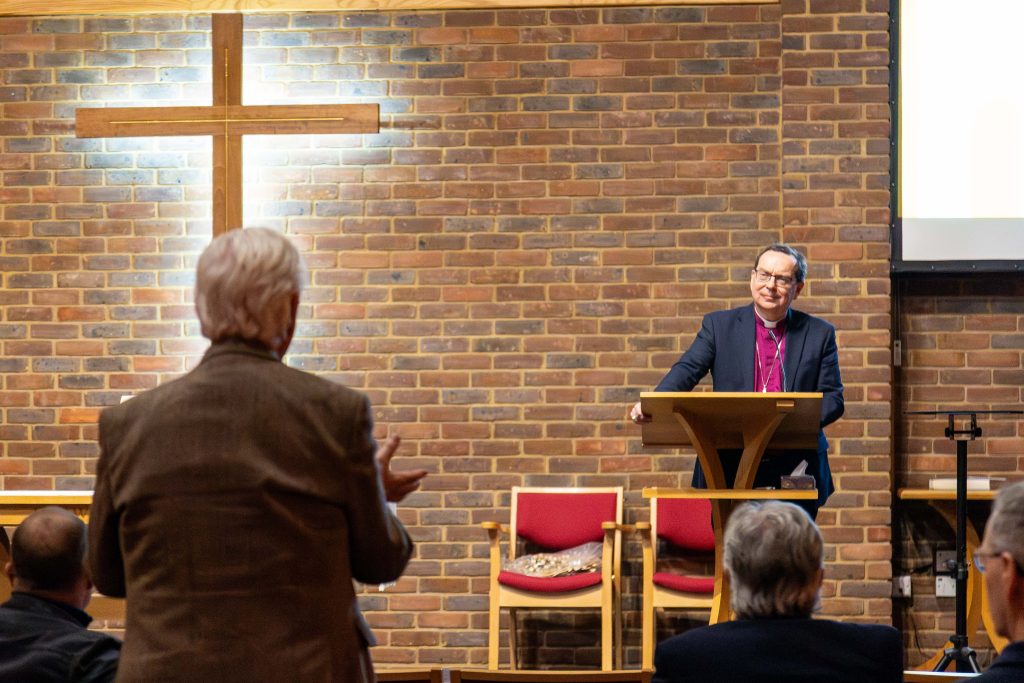
One way, clearly, and by far the most important is to be people of faith and trust: people who intrinsically trust our God for the future; who depend upon him; who rely upon him; who pray to him, and who seek his mind heart and will for the future. Nothing matters more than that: our future does not depend upon us, thankfully, but upon him above all, so let us depend upon him.
In my welcome sermon I suggested that three keynotes for the future should be heritage, healing and hope. We have such a rich heritage here, a legacy of grace, that should inspire us for the future; as much as we may need healing, we are called to be agents of healing for hurting world; and we are to be bringers of hope to world where that precious commodity is often in short supply. And if we are to bringers of hope that depends on our depending on the one who is our only source of hope: on Jesus Christ our Lord.
One way in which I hope we will be better equipped to face the future is through the appointment of a new Bishop of Southampton. The Dioceses’ Commission, which approves these appointments, met last week and I hope I will hear very soon that they have given us the green light. The normal practice is that applications to the Commission are approved in advance by the Diocesan Synod, but given the timings of our meetings that simply wasn’t possible – at least not without significantly delaying the appointment – and I’m sorry about that, but Bishop’s Council, acting as Standing Committee of this Synod, approved the application on your behalf.
The reason that the Dioceses’ Commission approves these appointments is that they are not paid for by the Diocese, but by the Church Commissioners. Apart from housing, suffragan bishops cost us nothing so I’ll have as many as possible! I know there was a question asked last time as to why we need another suffragan bishop when clergy numbers have fallen, to which I would reply that those two facts are related. Clergy well-being is increasingly important – of which more anon – and care for the clergy will be a key responsibility of any new Bishop of Southampton.
And at this point let me pay particular tribute to +Geoff, acting Bishop of Southampton, who is doing so much to support the ministry, and the ministers of the gospel across the South of this Diocese. For family reasons Geoff can’t be with us tonight but I’m sure we would all want to thank him, and Anne, for his devotion, dedication and service.
Another way we as a Synod can attend to the health and well-being of the Church that is entrusted to us is by looking and praying ahead to the forthcoming Synod elections. Please do think about people who you could encourage to stand perhaps who have not been involved before. What can we do to encourage younger people to stand; how can we be a more diverse Synod; how can we encourage people with commitment and passion in areas such as mission, community engagement, racial justice, net zero, or youth ministry? To name just a few. I certainly think that it’s vital that our next Synod elections and our next Synod is not dominated by issues around LLF, significant though those are.
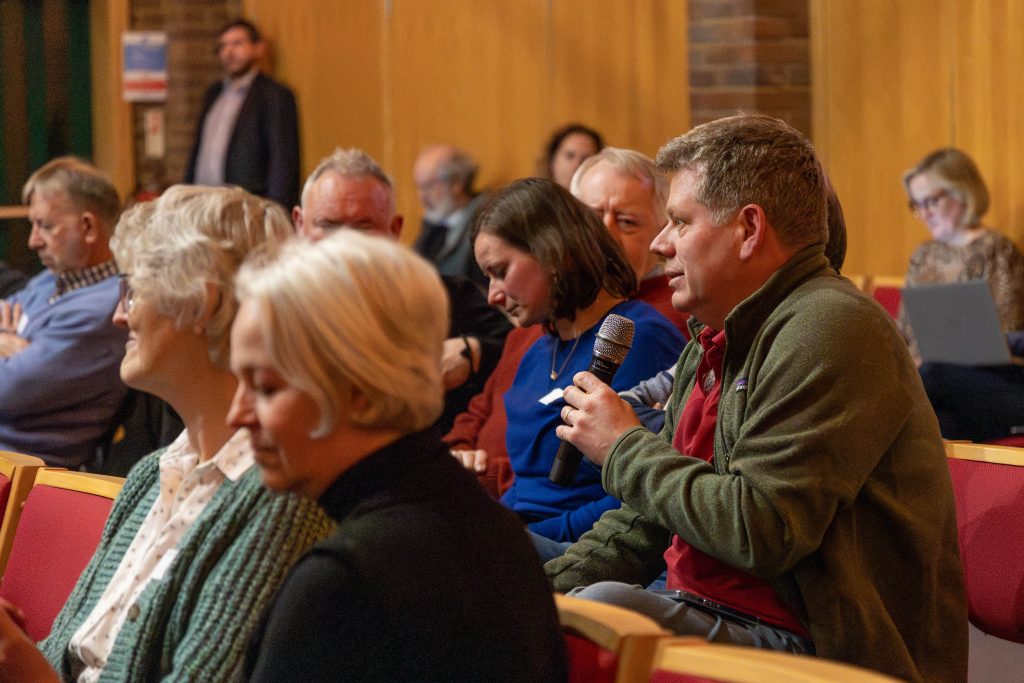
Of course as we look to the future we walk by faith and not by sight. My personal commitment as I made clear at the Clergy Conference, is not to jump to conclusions and indeed to curb my natural instincts to do so: rather my commitment in this season is to four ‘L’s’: to listen, learn, love and laugh – and I’m enjoying doing all four.
I don’t at the moment want to look to far beyond that, but I can say that I am working on an idea called ‘Walking the Wessex Way’ – which will be not so much a strategy as a framework for future thinking and acting, not only at a diocesan level, but in deaneries and parishes too. It will encourage us to draw on our heritage, our legacy of grace and think how it may play out now in four general areas of serving, learning, growing and loving.
But even now I think I can identify three key specific areas of future focus.
First, we need to continue our work in ensuring that the Church of God has the ministers it needs for the future, both lay and ordained, trained and equipped for ministry in the 21st C. We do so much that is good already in this area, and it’s a real joy for me to meet many wonderful, impressive people coming forward for ordination, and to celebrate a whole range of people entering into new ministries, lay and ordained, as we did at St. Pauls in Winchester just last week, but I want us to do so much more too, so we can be the best we can be.
Second, we need to do more to help our parish churches be fit for the challenges they face. Partly, that relates to what I’ve just said, in ensuring that all God’s people are equipped, enabled and released in their God-given ministries, but it’s also about helping our churches have a good sense of their corporate calling: what is our God calling us to be and do here, when we have been placed? How can we blossom where we’re planted? Those are key and life-giving questions for churches to ask, and we need to do more to enable them to answer them well.
And finally we do need to do even more to attend to clergy wellbeing. The fruitfulness and sustainability of the church depends in large part on the fruitfulness and sustainability of its ordained ministers. I’m very conscious of my responsibility to care both for the church of God and for its ministers, and I’m determined we should do the best we can in that area. I want this to be a very good Diocese for clergy to minister within.
And we should do all that – attend to ministerial formation, and parish development, and clergy wellbeing – all with the aim of helping the church to be the very best it can be.
Some of you will be aware that my favourite quote of the moment comes from G. K. Chesterton. He wrote this way back in 1909: ‘The more I considered Christianity, the more I found that while it had established a rule and order, the chief aim of that order was to give room for good things to run wild.’
My commitment to this Diocese is so to curate such a rule and order that there is indeed space for good things to run wild. Without rule and order we have chaos: but nor is it about a command-and-control culture: it is about ensuring there is room in our life for the wildfire work of the Spirit; for good things to run wild.
And indeed I think that’s the responsibility of this Synod too: so to curate such a rule and order in our Diocese that there is indeed space for good things to run wild.
I said at the beginning that I have an evangelical heart for the gospel; and a Catholic heart for the church. But if I’m committed to the gospel of Jesus Christ, and to the church of Jesus Christ – and I am – it’s simply because in the end I’m deeply committed to Jesus Christ himself, I’m held captive by him, and if we’re to be the best we can be then we need above all else to be deeply committed not just to his gospel and his church, but to him.
We must be deeply committed to him because, he says, ‘Apart from me you can do nothing’. And that is so true. ‘Apart from me you can do nothing’. But conversely, with him then all things are possible. With him all things are possible: so tonight, as we look to the future, we can say, in other words from Ephesians, with confidence, faith and hope: ‘Now to him who is able to do far more abundantly than all that we ask or think, according to the power at work within us, to him be glory in the church and in Christ Jesus throughout all generations, forever and ever. Amen.’

